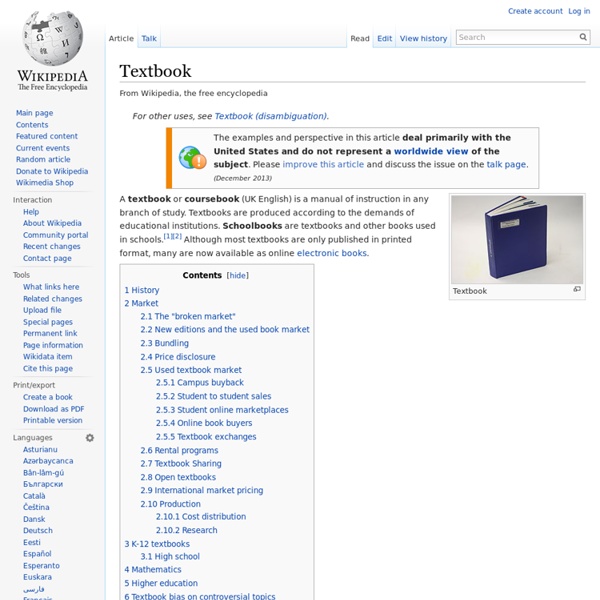Textbook

Map projection
More generally, the surfaces of planetary bodies can be mapped even if they are too irregular to be modeled well with a sphere or ellipsoid; see below. Even more generally, projections are the subject of several pure mathematical fields, including differential geometry and projective geometry. However "map projection" refers specifically to a cartographic projection. Background[edit] Maps can be more useful than globes in many situations: they are more compact and easier to store; they readily accommodate an enormous range of scales; they are viewed easily on computer displays; they can facilitate measuring properties of the terrain being mapped; they can show larger portions of the Earth's surface at once; and they are cheaper to produce and transport. These useful traits of maps motivate the development of map projections. However, Carl Friedrich Gauss's Theorema Egregium proved that a sphere's surface cannot be represented on a plane without distortion. Metric properties of maps[edit]
Carta a los editores de libros de texto
Estimados amigos, No nos conocemos personalmente, pero sigo con atención sus ruedas de prensa y leo sus estudios en su web. En algunas jornadas, etc. he coincidido con algún trabajador/a de sus empresas y hemos intercambiado opiniones sobre el futuro de los libros de texto en una escuela en la que todos y cada uno de los estudiantes disponen de un ordenador portátil y conexión a Internet… allí y en su casa (un futuro bastante probable y cercano). En esas ocasiones no me he privado de expresarles mi opinión de que Uds., ahora mismo, tienen dos graves problemas. El primero es que no tienen ni idea de qué pueda ser un » libro de texto digital». No se preocupen demasiado por esto: ni Uds. ni nadie. El segundo problema es que, como no tienen «producto», tampoco tienen ni idea de cómo venderlo. El objetivo de esta nota, sin embargo, no era informarnos de sus ingresos anuales, sino de su proyecto NEDA, una plataforma que… pero mejor dejar que Uds. lo expliquen: Y sigue más abajo: Atentamente,
Scavenger hunt
A scavenger hunt is a party game in which the organizers prepare a list defining specific items, which the participants – individuals or teams – seek to gather all items on the list – usually without purchasing them – or perform tasks or take photographs of the items, as specified.[1] The goal is usually to be the first to complete the list, although in a variation on the game players can also be challenged to complete the tasks on the list in the most creative manner. According to game scholar Markus Montola, scavenger hunts evolved from ancient folk games.[2] Gossip columnist Elsa Maxwell popularized scavenger hunts in the United States with a series of exclusive New York parties starting in the early 1930s.[3][4][5] The scavenger-hunt craze among New York's elite was satirized in the 1936 film My Man Godfrey, where one of the items socialite players are trying to collect is a homeless man.[6]
Lecturas sobre libros de texto
Esta semana han “caído en mis manos” varias lecturas interesantes sobre los libros de texto. El primero, gracias a un comentario de Mariona Grané (gràcies, Mariona) en este mismo blog, es un artículo de Anna López Hernández de 2007 titulado “Libros de texto y profesionalidad docente” y publicado en el número 6 de la revista “Avances en Supervisión Educativa”. Un texto realmente interesate. Los enseñantes consideran las decisiones del texto como algo que no debe ser sometido a crítica, al contrario, encuentra en ellas seguridad y garantía de buen hacer profesional. También estoy leyendo, tranquilamente, algunos de los capítulos de las actas de la X Conferencia Internacional sobre Libros de Texto y Materiales Didácticos que recientemente tuvo lugar en Santiago de Compostela organizada por la IARTEM (Internacional Association for Research on Textbooks and Educational Media) y que Jesús Rodriguez ha tenido la amabilidad de compartir en la lista DIOE. Un congreso muy interesante, ¿verdad?
Related:
Related:




Textbook. A book is written for students that provide current knowledge and theory of a given subject.
Found in Glossary: 2011 - (Jesson, et al.) Doing Your Literature Review: Traditional and Systematic Techniques by raviii Apr 16